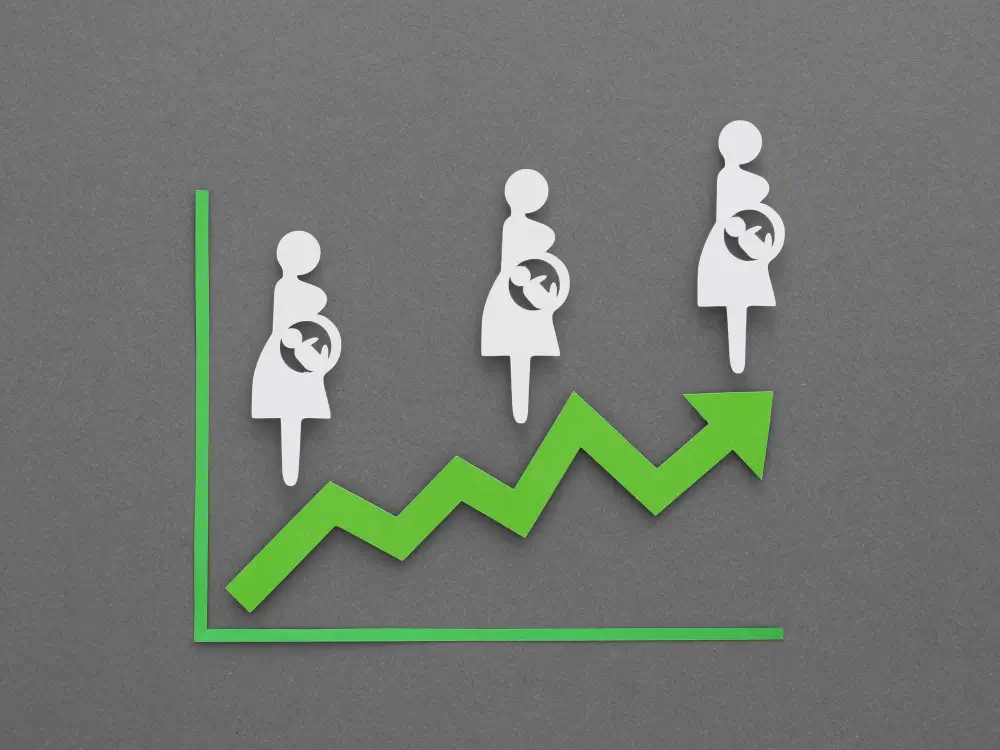For Indian planned parents in the USA, success rates are perhaps the single most significant factor when undergoing egg donation. Being aware of success rates enables families to be realistic, make informed decisions, and plan subsequent cycles if necessary.
This guide deals with the most significant success indicators, compares fresh and frozen eggs, and offers advice to maximize results.
Factors Affecting Egg Donation Success Rates
There are some reasons that determine the success of an egg donation cycle. They are:
1. Donor Age and Health
- Donors usually range from 19–30 years of age.
- Younger and healthier donors would provide quality eggs, with ga reater chance of fertilization and pregnancy.
2. Medical Screening
- Detailed screening ensures that the donors are not infected with infectious diseases, genetic diseases, or other medical conditions.
- Organizations like Indian Egg Donors provide pre-screened Indian donors, thereby increasing the reliability of success.
3. IVF Laboratory Quality
- The lab’s efficiency in fertilization, embryo culture, and transfer matters a great deal.
- Using high-tech lab equipment with the potential to vitrify frozen eggs brings excellent success rates.
Fresh vs. Frozen Eggs and Success Rates
Fresh Eggs
- Concurrent donor and recipient cycles are performed simultaneously.
- Higher success rates are partly because it fertilizes eggs instantly.
- Typically, more embryos for reuse.
Frozen Eggs
- Increased flexibility with timing.
- New techniques of freezing save good-quality eggs.
- Less success but still acceptable with good laboratories.
The IVF cycle with donor eggs typically remains around $15,000–$25,000.
To read more, you can click the link – Egg Donation Costs in the USA – What Indian Parents Should Expect.
Typical Success Rates in the USA
- Success of first transfer: Approximately 50–60% in healthy donors and recipients.
- Second transfer or repeat cycles: Increase in success with leftover embryos.
- It is dependent on egg donor quality, the health of the recipient’s uterine environment, and laboratory technique.
Indian parents can negotiate slightly with Indian Egg Donors so that planning for the number of embryos needed and expectations can be realistic.
Tips to Maximize Success
- Choose a healthy pre-screened Indian donor: Donors are rigorously screened medically and lifestyle-wise by agencies.
- Choose a good fertility clinic: Quality of the lab plays a crucial role in fertilization and embryo quality.
- Follow strictly the medication protocols: Proper hormone regulation during ovarian stimulation is crucial.
- Consider lifestyle and health for the recipient: Healthy BMI, non-smoking, and stress management can enhance implantation rates.

Why Indian Parents Prefer Indian Egg Donors
Indian parents prefer donors of Indian ethnicity since they are more comfortable with them in cultural, physical, and genetic terms. Utilization of Indian Egg Donors assures:
- Screened, confirmed Indian donors with thorough medical profiles
- Individualized counseling for fresh or frozen cycles and estimated success rates
- Care coordination with the top-ranked U.S. IVF centers for maximum success
Parents can call Indian Egg Donors at (212) 661-7177 to talk to them regarding the best donor and treatment to best meet their needs.
Conclusion
Indian intended parents are empowered and educated about making the correct choices in the USA once they are aware of the success rates of egg donation. Donor age, medical health, lab quality, and recipient preparation are all good things.
Having the backing of a superior egg donor agency like Indian Egg Donors as a resource places parents in a situation to be able to access pre-screened adult donors from India, ensure success rates, and professional guidance, hence making parenthood simple and predictable.
Frequently Asked Questions (FAQs)
Q1. What is the typical success rate for first-time egg donation transfers?
Ans : Around 50–60% in healthy donors and recipients.
Q2. Does using frozen eggs reduce success rates?
Ans : Frozen techniques nowadays have excellent viability with minimal difference from fresh eggs.
Q3. How does donor ethnicity affect success?
Ans : The ethnicity does not affect the success of fertilization directly but helps with the genetic and physical compatibility of Indian parents.
Q4. Can multiple embryos be used if the first transfer fails?
Ans : Yes, leftover embryos may be frozen and replaced in subsequent cycles.
Q5. Do Indian Egg Donors provide success rate guidance?
Ans : Yes, they give Indian intended parents accurate figures and professional guidance on how to make a well-informed choice.

Dr. Pooja Patel
Dr. Pooja Patel is a Chief Surrogacy Coordinator at Surrogacy4all. She has 10 years of experience in Anesthesiology and critical care medicine.
She received her medical degree from Seth GS Medical College and K.E.M Hospital in India. She then completed an internship. She finished her Anesthesia residency at Grant Govt Medical College and JJ Group of Hospitals in India.










